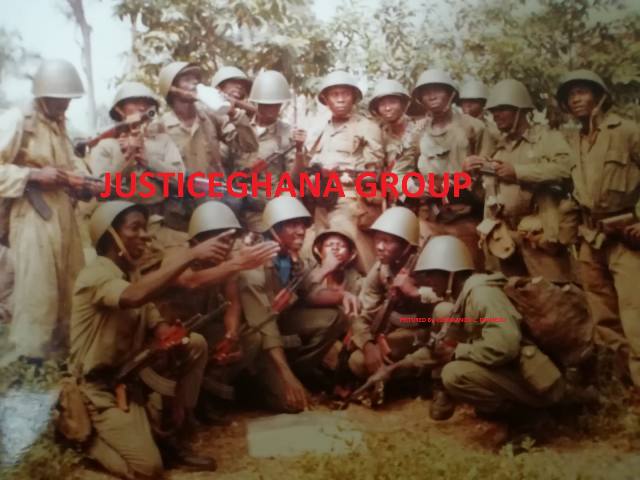Welcome
....to JusticeGhana Group

JusticeGhana is a Non-Governmental [and-not-for- profit] Organization (NGO) with a strong belief in Justice, Security and Progress....” More Details
Discipline in Economic Management: The Key to Sustainable Growth and Prosperity - The Economy: 1957-1966
- Details
- Parent Category: Our Country
- Category: Business & Finance
- Created on Friday, 22 November 2013 00:00
- Hits: 15513
1957-1966
Mr. Chairman, at independence, the Convention Peoples Party (CPP) under the leadership of President Kwame Nkrumah espoused and pursued an ideology of socialism, advocating the collective or governmental ownership and administration of the means of production and distribution of goods. The CPP inherited from the British, a healthy amount of foreign exchange reserves of $273 million, (the equivalent of $2.275 billion today). In addition, there was virtually no external or domestic debt and Ghana’s population was only 6.5 million. To put this in perspective, in 2008, Ghana’s gross international reserves were $2.03 billion, with a total debt stock of GH¢9.5 billion ($8billion) and a population of some 23.0 million. The CPP did not therefore face the typical economic pressures faced by all other Ghanaian governments upon assuming government. I think the CPP is the only government in our history that has not said “The country is broke” when they came to power. They had no reason to.
The CPP quickly set about implementing Nkrumah’s vision of state-led industrialization. Fiscal policy was therefore expansionary. Expenditure on education, health, and physical infrastructure such as schools, roads, dams, hospitals, electrification and so on dramatically increased from their colonial levels. The inherited foreign exchange resources financed development projects such as:
• Tema Harbour
• Cape Coast University
• Kwame Nkrumah University of Science and Technology,
• Accra-Tema Motorway,
• Akosombo dam,
• Black Star Line,
• Construction of numerous schools and hospitals,
• Ghana Medical School
• Okomfo Anokye Hospital
• Ghana Atomic Energy Commission
• State-owned enterprises like Ghana Airways, Tema Food, GNTC, State Hotels etc Complex, GIHOC,
• State farms
Nkrumah’s development plans soon confronted the strict arrangements for monetary discipline contained in the West African Currency Board. Mr. Chairman, at independence, the Gold Coast was operating with the colonial international economic arrangements. The British West African Currency Board (WACB) was constituted in 1912 to control the supply of currency to the British West African Colonies. The exchange rate of the West African Pound to sterling was fixed. Under this regime, government could not just print money without backing it with an increase in foreign reserves. This framework kept inflation barely noticeable. In fact, at the time of independence in 1957, Ghana’s inflation was less than 1 percent and a year later was zero. There was no exchange rate depreciation to worry about against the pound sterling.
Nkrumah however wanted a banking system that would complement the CPP’s government-led development strategy. It should be noted that the Bank of Ghana was established in 1957 when the Bank of Ghana Ordinance was passed by the British Parliament. The Ordinance was designed to protect the central bank from political interference and prevent the use of the Bank’s and the country’s resources indiscriminately. The Central Bank in 1957 was designed to enforce monetary discipline in a manner akin to the WACB arrangements.
By 1960, the Convention Peoples Party was becoming increasingly frustrated with the apparent autonomy of the Bank of Ghana. In fact, this frustration became more strident as Government finances were coming under severe pressure and the foreign exchange reserves were declining. The Government deficits were rising and unlike the earlier years when foreign exchange reserves were relatively plentiful, by 1960, the option of using foreign reserves to finance the deficit was limited. Government also exhausted its bank balances and started borrowing from the banking system. The Government of Ghana began to issue Treasury Bills in 1960. Exchange controls and import licensing were introduced in 1961 under the Exchange Control Act to limit further loss of foreign exchange reserves.
A Bank of Ghana Act of 1963 was passed to break from the monetary discipline that was imposed by the WACB arrangements. Dr. Nkrumah wanted it all. He wanted a central bank that could print money as needed but at the same time he wanted to have a fixed exchange rate for the cedi. He was basically defying the laws of economics and it was only a matter of time before the center could not hold.
Nkrumah’s ambitious development program took its toll on the economy. Many of the state-owned enterprises were operating at a loss and adversely impacting public finances. The fiscal position also deteriorated as Government spending increased from 9.5 percent in 1957 of GDP to 25.8 percent of GDP by 1965. The government budget balance deteriorated from a surplus of 14.5 percent of GDP in 1954 to a deficit of 6.4 percent of GDP by 1965.
The external reserve position deteriorated significantly between 1957 (when net reserves stood at $269 million) and 1966 when they stood at (-$39 million). Ghana, with so much in foreign reserves at independence, was broke by 1965.
The deteriorating economic and political situation was used by a group of military and police officers, (National Liberation Council) as an excuse to stage a coup d’etat and overthrow the CPP on February 24, 1966.


 Who Constituted The 64 Regiment?
Who Constituted The 64 Regiment?

